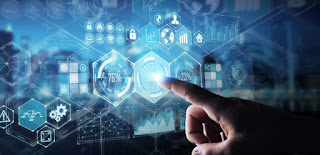Tank Terminals Sustainability: can information theory help us reach our goals?

The question is no longer; is it sustainable? But; how can we ensure non harmful functionality? StocExpo is back in 2023 with two separate conference streams, one exploring big picture tank storage, and the other on health & safety and the practicalities of terminal operations. On day two of the Terminal Operations and Safety conference stream, Arend Van Campen, founder of the Tank Storage Sustainability Initiative and Tank Terminal Training, will talk on how tank terminals can realistically minimise their social and environmental impact using information theory. Here’s a taster… It’s incredibly hard for the tank storage sector to minimise its impact on the environment in a significant and wholesale way. There are different levels of regulation, infrastructure, and desire to tackle the environmental impact of tank terminals country to country. But even on an individual level, sustainability represents a huge challenge to terminal operators. This is partly be...
